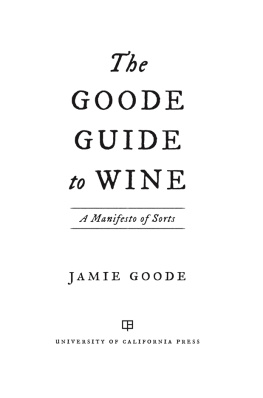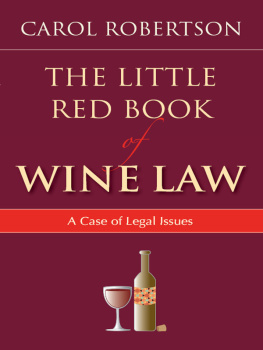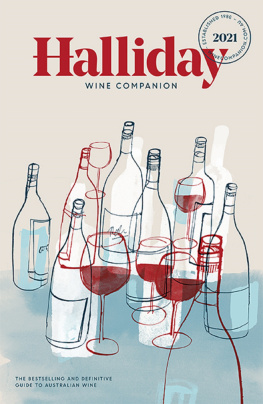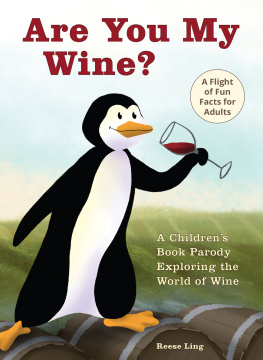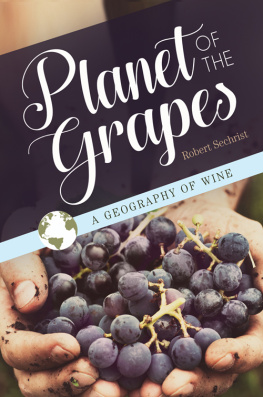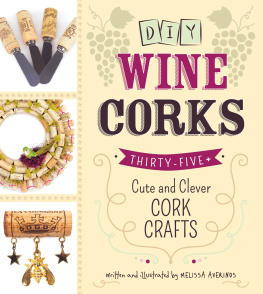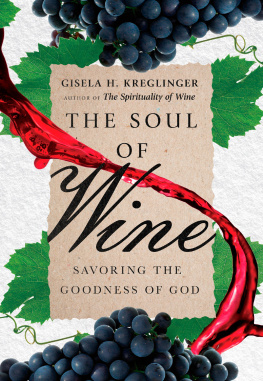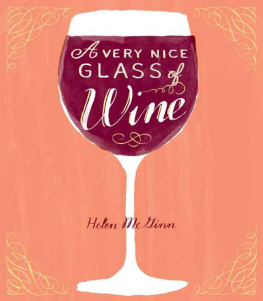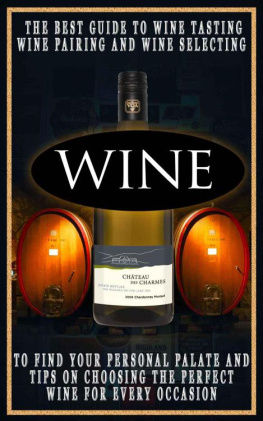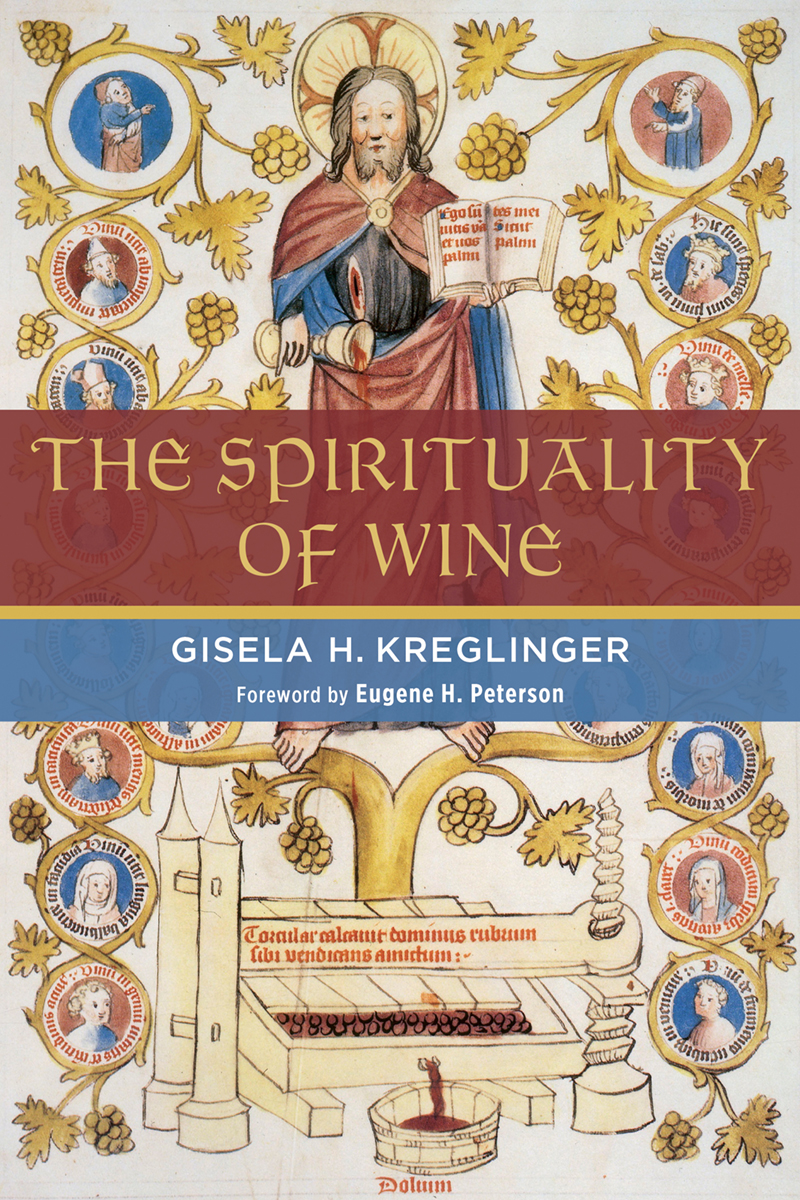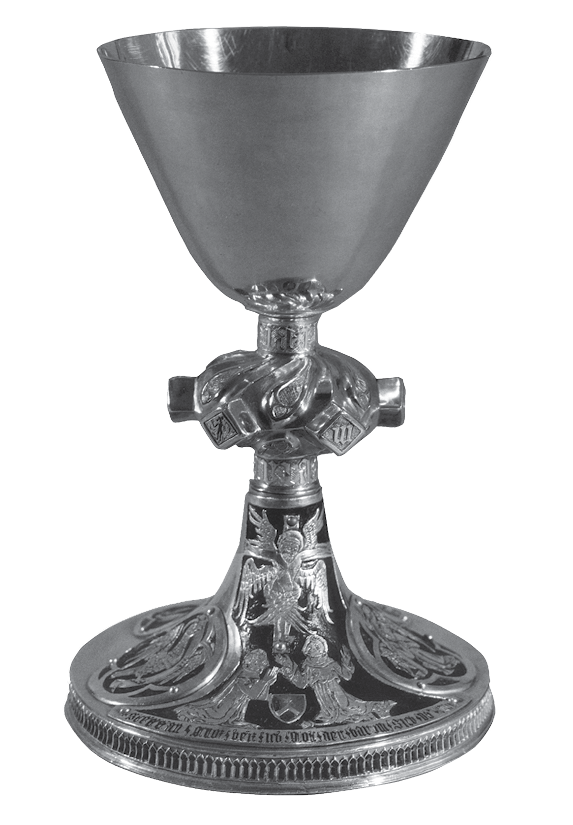Wine as a gift of Gods love, wine as a witness to the in-breaking of Gods kingdom of life and joy, wine as the drink that draws us more closely into the fellowship of Christ, and wine-making as our participation in the care and celebration of Gods good creation these themes and many more besides are lovingly developed in this beautifully conceived book. Gisela Kreglinger opens up the gift and the mystery of wine in these pages so that we can taste Gods invitation to us to share in the divine love that heals the world and the deep joy that celebrates our life together.
Norman Wirzba
Duke Divinity School
I wept upon reading The Spirituality of Wine by Gisela Kreglinger. Our restaurant has received Wine Spectator s Grand Award for twenty years, so how is it that I had only tasted the tip of this reality, only touched the knowledge of its gifts? Profound and potent, intertwined with practical and tangible application, this book has completely astonished me. Like an exquisite wine in a bottle, Ive been transformed from within.
Alice Canlis
Canlis Restaurant, Seattle
The Kreglinger Chalice was commissioned by Gisela Kreglingers
ancestors for a Franciscan church in Rothenburg, Germany.
(Photograph by Karlheinz Gisbertz)
The Spirituality of Wine
Gisela H. Kreglinger
William B. Eerdmans Publishing Company
Grand Rapids, Michigan
2016 Gisela H. Kreglinger
All rights reserved
Published 2016 by
Wm. B. Eerdmans Publishing Co.
2140 Oak Industrial Drive N.E., Grand Rapids, Michigan 49505
Printed in the United States of America
Library of Congress Cataloging-in-Publication Data
Names: Kreglinger, Gisela H., 1967- author.
Title: The spirituality of wine / Gisela H. Kreglinger.
Description: Grand Rapids, Michigan : William B. Eerdmans Publishing Company,
[2016] | Includes bibliographical references and index.
Identifiers: LCCN 2015045473 | ISBN 9780802867896 (pbk. : alk. paper)
eISBN 9781467445313 (ePub)
eISBN 9781467444842 (Kindle)
Subjects: LCSH: Wine Religious aspects Christianity.
Classification: LCC BR115.N87 K74 2016 | DDC 261.5/6 dc23
LC record available at http://lccn.loc.gov/2015045473
www.eerdmans.com
For
Gertrud Kreglinger-Mller and Herbert Mller
and all those vintners
whose faith finds expression
in their fidelity toward the land
Contents
1. Wine in the Bible:
Gods Gift and Blessing
2. Wine in the History of the Church:
Its Rise and Fall
3. Wine in the Lords Supper:
Christ Present in Wine
4. Wine and Communal Feasting:
The Joy of the Lord Is Our Strength
5. Wine and Attentiveness:
Tasting God, Tasting Wine
6. The Vintner as (Practicing) Theologian:
Finder or Maker?
9. Wine and the Abuse of Alcohol: Rescuing
Wine from the Gluttons for the Contemplatives
Dr. Gisela Kreglinger writes of growing up on a small family winery in Bavaria that has been in her family since the seventeenth century. It is a fascinating account of the craft of wine-making and the implications of how it affects our lives. It is a very personal story and prompts us to think about our place in the great community of Gods creation.
Kreglinger talks with vintners in Italy, France, Bavaria, California, and Oregon. Her father, Peter, has a place in the story. And the Bible, of course, in which wine plays a major role.
It interests me that weddings (and, of course, the wine that goes with them) play a prominent role in the biblical narratives. In the story that John writes near the beginning of his Gospel, it is a wedding and wine that get the story moving. John has carefully organized his Gospel on a framework of seven signs that give witness to the nature of Jesus presence among us. Then, in the final four chapters of Revelation, also written by John, he picks up this celebratory beginning in Cana and brings it to a celebratory conclusion: for the marriage of the Lamb has come, and his bride has made herself ready (19:7).
I have always delighted in the parallel wedding stories that John uses near the beginning of his Gospel and near the end of Revelation as the angel instructs him: Write this: Blessed are those who are invited to the marriage supper of the Lamb.... Then I fell down at his feet to worship... (19:9-10). St. John loves weddings. Weddings play a significant part in his recapitulation of the life of joy.
This invitation is followed by the bride herself: And I saw the holy city, new Jerusalem, coming down out of heaven as a bride adorned for her husband; and I heard a great voice from the throne say, Behold, the dwelling of God is with men (21:2-3). A final mention of the wedding is generously welcoming: The Spirit and the Bride say, Come. And let him who hears say, Come. And him who desires take the water of life without price (22:17).
As Christs salvation work among us is completed and as the New Jerusalem is established, there is this confirming but unadorned comment: And its gates will never be shut (21:25).
Never? Really? That is what the text says. Jesus doesnt want any of us to miss the joy.
Eugene H. Peterson
Professor Emeritus of Spiritual Theology
Regent College, Vancouver, BC
Two fields of experience and learning converge in the pages of this book: the field of Christian spirituality and the world of wine. I grew up on a small family winery in Franconia, Germany, a region that became part of Bavaria about two hundred years ago, during the Napoleonic Wars. Franconia had a long and independent history before then, and though the Romans seem to have brought vines to the area first, it was Benedictine nuns who first developed viticulture in our region, in about ad 600.
The winery was in bad shape after World War II, and my grandparents, together with my parents, worked very hard to rebuild it out of the ruins and plant vineyards. My mother and a wonderful group of women from the village were the workers in the vineyard. I spent the first three years of my life in a playpen at the bottom of the vineyard because my mother could not stay home to take care of us children. From our vineyards the views of the Main Valley are stunning. Friederike, an orphaned child, shared the playpen with me. One of our workers had taken her in and raised her. My father and the apprentices he trained performed the most physically strenuous work on the wine estate.
On rainy days I had to stay with my grandfather in the office. He was a gentle soul, and he did all the administrative work for the winery. I dont think that he enjoyed the distraction of small children crying and whining, but on a small family winery everyone had to chip in to make it work. There were four of us children, all girls, and my father must have worried about who would take over the winery one day. When I was born, my grandmother could not resist pointing out that my mother had given birth to yet another girl (number three); on top of that, I had red hair.
Life on the winery was very unusual for us girls. When we were in school, my mother often felt sorry for us because, as soon as we would come home, my grandmother had a long list of chores that needed to be done at the winery. Even as fairly small children, we worked a lot. Our friends did not like to play on the family estate. Sooner or later we would all get sucked into the never-ending hustle and bustle that makes up life on a family vineyard. I remember vividly having to crawl into the small opening of our wine vats and scrub them clean from the inside. It was dark, wet, and cold inside, and I could not wait to get out again. It was one of my least favorite chores.


